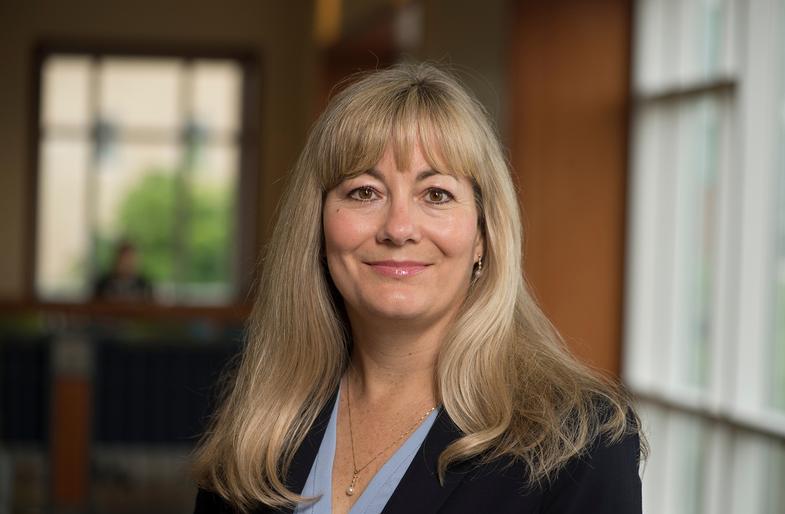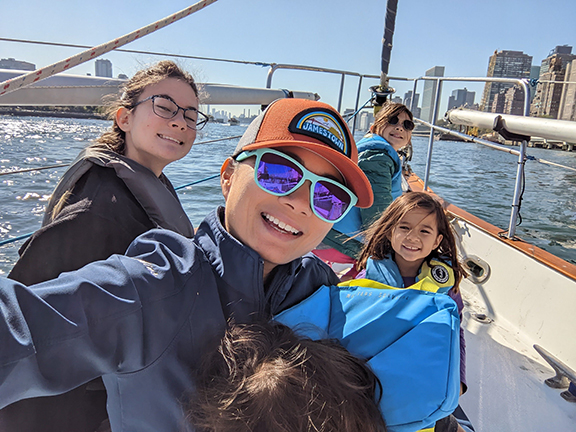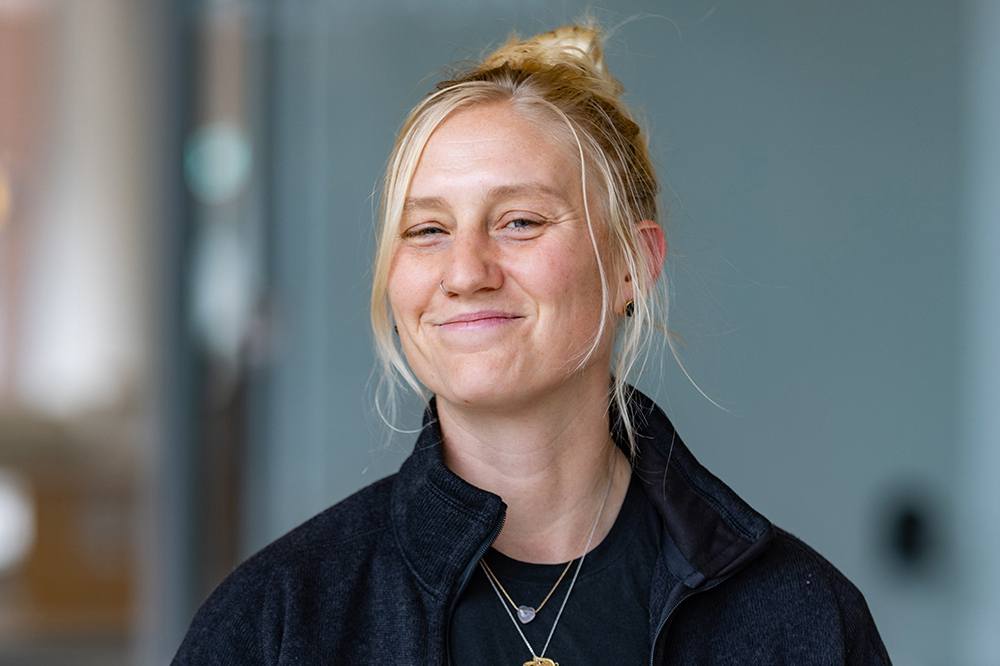Kimberly McIltrot, DNP, CPNP, CWOCN is the newly selected Program Director for the Doctor of Nursing Practice (DNP) program at the Johns Hopkins School of Nursing—recently ranked No. 1 by U.S. News & World Report.
She’s a former officer in the U.S. Army Nurse Corps (who was awarded the Bronze Service Star for her work in Operation Desert Shield/Desert Storm/New Dawn), was the lead nurse practitioner in pediatric surgery at the Johns Hopkins Hospital for many years, is the founding editor of the Journal of Pediatric Surgical Nursing, and—fun fact—she’s a triplet and the mother of triplets!
In a short Q&A, Dr. McIltrot shares her thoughts on the DNP degree, programmatic offerings, and the changing face of nursing.
Why did you pursue a DNP?
It was very timely; I had my MSN and was working as an advanced practice nurse practitioner in pediatric surgery across the street at Johns Hopkins Hospital. Doctoral education wasn’t always on my radar, but my chief of surgery consistently encouraged me to publish and present, and at the time we were having discussions around bowel management. I heard Johns Hopkins was starting a DNP degree program and thought it was a great opportunity to elevate my leadership and scholarship skills.
My DNP project investigated if it is necessary to do bowel preparations in advance of gastrointestinal surgery and graduated with our first DNP cohort in 2010.
Post-Master’s Pediatric Acute Care NP Certificate
What are some exciting career opportunities available to DNP grads?
It’s a great time to pursue a DNP at Johns Hopkins. Several advanced practice RN roles that prefer candidates with a DNP degree (like “nurse practitioner,” “nurse midwife,” and “nurse anesthetist”) are listed among U.S. News & World Report’s best jobs.
Then, students emerge as leaders in health care. From my own cohort I can think of two who are now chief nursing officers at top hospitals in Baltimore—Joanne Ioannou at GBMC and Susan Finlayson at Mercy.
Graduates go on to lead clinical practice or become health care entrepreneurs (that’s why I think the DNP/MBA program is particularly exciting); and it’s always a thrill to go to a national conference or open a journal and see a graduate’s name as a lead author or keynote speaker. Our DNP graduates go on to do incredible things!
How are DNP options at Johns Hopkins tailored to fit different types of students?
There are different points of entry—if you are an RN who wants to become an advanced practice nurse, our DNP Advanced Practice Track fits, and if you’re already an advanced practice RN you may be interested in our DNP Executive Track.
Within the DNP Advanced Practice Track, students can choose from a variety of specialty areas (such as pediatrics, gerontology, and even an HIV certification) as well as different advanced practice roles (such as a clinical nurse specialist or nurse practitioner). Then there are dual degrees (a PhD/DNP and a DNP/MBA) to instill in a select group of students the unique, combined values of different academic perspectives.
We now offer more online options than ever, with many tracks that include immersions in Baltimore so students can take advantage of Johns Hopkins’ rich academic, clinical, and community environments. We also work hard so that our distance students feel engaged and included in our community.
How did your work as co-leader of the DNP Executive Cohort from Saudi Arabia prepare you for this new position?
Leading the Saudi cohort was a phenomenal, eye-opening experience. We taught the program online with immersions—the cohort came to Baltimore once and the other instructors and I went to Johns Hopkins Aramco Healthcare in Saudi Arabia several times throughout the program. What stands out were the times we had to find creative solutions, like teaching through the Zoom virtual platform, and finding culturally appropriate wording for lessons. For instance, the phrase “use your toolkit” didn’t translate well.
We graduated 13 nurses in 2017, increasing the country’s total number of doctoral nurses by 30 percent. Ever since then I’ve been much more aware of the language that goes into every course so that every student will be set up for success.
How are DNP nurses changing the face of nursing?
Our nursing profession is evolving. Nurses are full partners on the health care team, and we need more nurses in leadership roles to represent the nursing perspective at the decision-making table.
Even as the respect grows for nurses’ contributions, the need for us as practitioners grows, along with our autonomy, in many places. For example, there is great demand for nurse practitioners in rural communities across the U.S as well as in intensive care units. This new generation of DNP-prepared nurses are the change agents we need to meet our patients’ needs. They’re stepping into leadership roles and bringing the nursing perspective into new arenas.
Learn more about the Doctor of Nursing Practice (DNP) Program at the Johns Hopkins School of Nursing
Doctor of Nursing Practice (DNP) programs at the Johns Hopkins School of Nursing:
- Doctor of Nursing Practice (DNP) Advanced Practice Track
- Doctor of Nursing Practice (DNP) Executive Track
- Doctor of Nursing Practice (DNP)/ MBA
- Doctor of Nursing Practice (DNP) Advanced Practice/ PhD

ABOUT THE AUTHOR: SYDNEE LOGAN
Sydnee Logan is the Social Media and Digital Content Coordinator for Johns Hopkins School of Nursing. She shares what’s going on here with the world.

 The Learning Collaborative: ‘I Think I Can, I Think I Can …’
The Learning Collaborative: ‘I Think I Can, I Think I Can …’ Sea Change for DNP Student
Sea Change for DNP Student All Together Now!
All Together Now! Team Captain
Team Captain Sky’s The Limit
Sky’s The Limit







